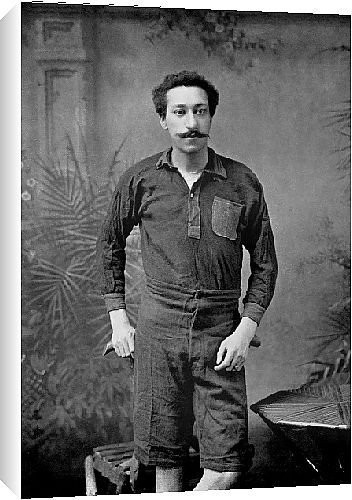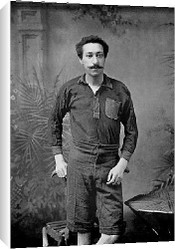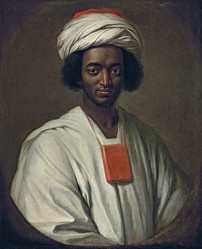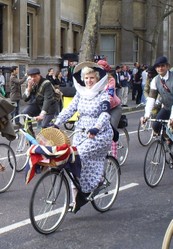Efforts to erect a statue to Arthur Wharton have a wider ambition. To quote from their website, they want to also encourage:
"• The promotion of cultural understanding and enhanced relations between different racial groups through educational and awareness- raising programmes;
• The development of a range of events and activities, including tournaments, to foster understanding between people from diverse backgrounds;
• The ongoing raising of funds to help to ensure that young people from all backgrounds and cultures have access to the equipment and facilities which will enable them to develop their own sporting skills and talents."
In addition, the anti-racist organisation Kick It Out has created an exhibition for use by schools, youth clubs, and similar organisations. Called Pioneers, Past Masters and Future Challenges, it features Arthur Wharton amongst its celebration of black and Asian football players.
Arthur Wharton was one of Britain’s greatest athletes. In 2003 he was inducted into The National Football Museum's Hall of Fame.
As Europe takes up the gauntlet to fight racism, there has never been a better time to remember this remarkable man.
Sources:
BBC Inside Out, January 2013
Arthur Wharton Foundation
Football Unites Racism Divides
Kick It Out
100 Great Black Britons











 How to Choose a Walking Cane or Stickon 08/01/2014
How to Choose a Walking Cane or Stickon 08/01/2014
 Michael Miller Fabulous Fabric Swatches for Quilting, Crafts etcon 07/02/2014
Michael Miller Fabulous Fabric Swatches for Quilting, Crafts etcon 07/02/2014
 The Drama of Life in the Rock Poolon 06/08/2014
The Drama of Life in the Rock Poolon 06/08/2014
 The Flâneur - Symbol of Modernity in 19th Century Parison 05/09/2014
The Flâneur - Symbol of Modernity in 19th Century Parison 05/09/2014



Comments
cmoneyspinner - I'm so pleased you found the article interesting - and thanks very much for sharing it on Pinterest! :)
Rising above racist taunts or any kind of taunts for that matter? If you trying put certain folks down, taunting them usually just motivates them to achieve. It's so silly! Why people gotta be haters? Dumb stuff!! Interesting article. I love biographies. Sharing this via Pinteres.
Hi John - Tull was, I believe, the first black professional footballer to play in Latin America after he signed for Tottenham in 1909. Wharton was, as you say, professional before him. Tull had a distinguished life, and it would make a great article. They were both very brave sportsmen to have braved the racial abuse they had to contend with on the pitch. Really appreciate your comments - thanks.
I think you're right but I was reading that Walter Tull was the first black professional footballer. His story came a little later. He played for Spurs and became an army officer in WW1 where he died. Either way, kick it out is the best idea. In the UK, we more or less have but I share your sentiments about the East European fans.
I agree - I too was reminded of Eastern Europe. There's a long way to go still I think...and also it's still hard for gay players. Kick it Out are campaigning for equal rights for both black and gay players. I'm glad you found it interesting Nick. Thanks for your post.
Very interesting. Is it really only just over thirty years ago that Viv Anderson became the first black player to represent England? It is great that this has become normal now but what a terrible shame that they still suffer abuse, particularly when they play in countries in eastern Europe.